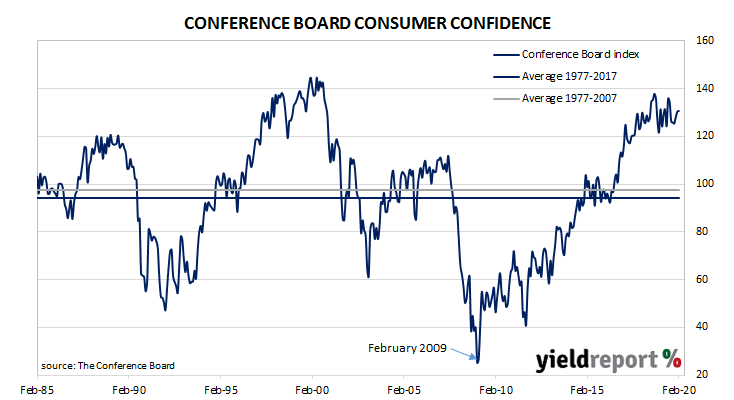US consumer confidence collapsed in late 2007 as the US housing bubble burst and the US economy went into recession. By 2016, it had clawed its way back to neutral and then went from strength to strength until late 2018. Since then, measures of consumer confidence have oscillated within a fairly narrow band at historically high levels.
The latest Conference Board survey held during the first half of February indicates US consumers remained very optimistic. February’s Consumer Confidence Index registered 130.7, below the median consensus figure of 132.5 but above January’s final figure of 130.4. Compared to consumers’ views held at the time of the January survey, their views of present conditions deteriorated while their views of future conditions improved.
ANZ senior economist Felicity Emmett said, “Confidence remains elevated and while the dip in the present assessment could reflect some anxiety about COVID-19, the outlook is bright, implying private consumption should hold firm.”
Financial markets largely ignored the report as they were focussed on the possible globalisation of the SARS CoV-2 virus and the economic fallout which would accompany it. By the end of the day, yields on 2-year and 10-year Treasury bonds had each lost 2bps to 1.22% and 1.35% respectively while the 30-year yield had slipped 1bp to 1.82%.

